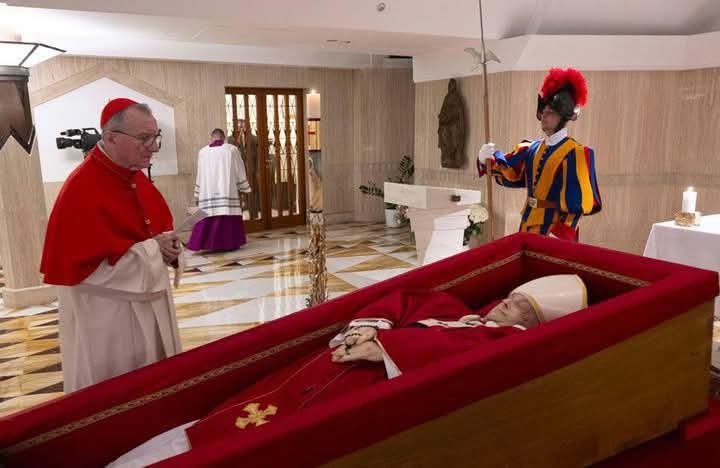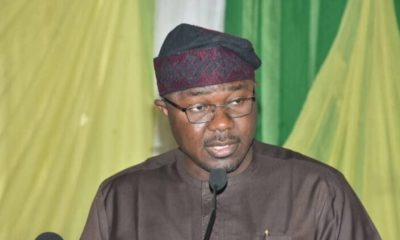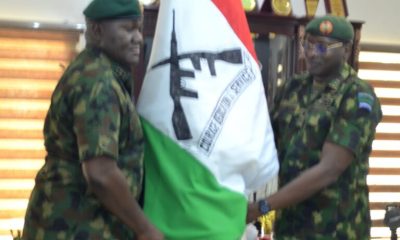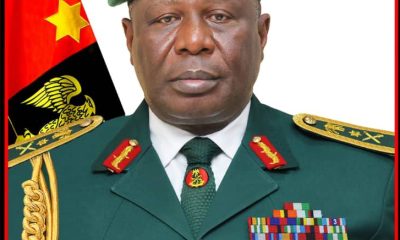Foreign News
Israel Targets Militant Commanders, Gaza Tunnel Network

Israel’s military said on Monday it had targeted militant commanders and the tunnel network in the Gaza Strip, as Palestinian militants continued to fire rockets towards Israel.
In spite of international calls for a ceasefire, the conflict between Israel and Hamas, the ruling authority in Gaza is entering its second week with no sign of letting up.
Israel’s army said it had shelled the homes of nine senior commanders from the Islamist Hamas movement overnight.
Some were used as weapons caches, according to the Israeli military.
Another target, a commander of the Islamic Jihad militant group in the northern Gaza Strip was killed in a separate attack, Israel said.
Hasem Harbid apparently led an Islamic Jihad unit in the north of the strip.
More than 1,500 targets had been attacked in the Gaza Strip, Israeli Prime Minister Benjamin Netanyahu said on Sunday.
Netanyahu said the operation would continue at full force.
At night, 54 fighter jets were deployed to attack the underground tunnel network in Gaza, the army said.
It said that some 15 kilometres of tunnels were destroyed.
The Palestinian side said the airstrikes were the heaviest yet in densely populated Gaza and the rocket fire from Gaza had been equally intense.
Some 3,150 rockets have been fired at Israel since last Monday, according to the Israeli military.
About 460 of the rockets never made it across the border and went down in Gaza territory, it added.
The Iron Dome missile defence system had an interception rate of about 90 per cent, it said.
By comparison, a total of 4,481 rockets were fired at Israel during the entire 51-day Gaza war in 2014.
At least 192 people have been killed in Gaza, including 58 children, according to the coastal territory’s health ministry.
On May 15, during the night, 42 Palestinians were killed in Israeli army attacks on homes in Gaza, the ministry said.
In Israel, rocket fire has killed 10 people since last Monday, according to rescuers.
Israel blames Hamas, the Islamist militants in control of the Gaza Strip for any attacks from there.
The group is classified as a terrorist organisation by Israel, the U.S. and the European Union.
International diplomatic efforts to calm tensions have had little apparent effect so far.
In an unusual intervention, Turkish President Recep Tayyip Erdogan told Pope Francis that Palestinians would continue to be massacred, if the international community did not sanction Israel.
“The pope’s messages about and reactions to this issue are of great importance in terms of mobilising the Christian world and the international community,’’ Erdogan said in a phone call with Francis.
Around 42,000 Palestinians in the Gaza Strip have fled their homes because of Israel’s air attacks on the coastal territory.
They have sought shelter in 50 schools run by the UN Palestinian Relief and Works Agency in the Gaza Strip, a spokesperson for the organisation said.
More than 2,500 people have been left homeless after their homes were destroyed.
Israel says it is only targeting militant positions, but some of those are in the middle of highly crowded residential areas.(dpa/ NAN)
Foreign News
ECOWAS Convenes Meeting in Ghana on Withdrawal of Niger, Mali, Burkina Faso

The Economic Community of West African States (ECOWAS) Council of Ministers has convened a meeting in Accra, Ghana, to deliberate on the withdrawal of Niger, Mali, and Burkina Faso from the regional bloc.
The Chairman of the Council, Nigeria’s Minister of Foreign Affairs Amb.
Yusuf Tuggar, made this known in a statement issued by Alkasim Abdulkadir, his Special Assistant on Media and Communications Strategy.“The Extraordinary Session follows directive from the Authority of Heads of State and Government during its 66th Ordinary Session, mandating the Council to adopt modalities and a contingency plan for the disengagement of the three Sahelian nations.
“The ECOWAS Commission is expected to present memoranda addressing the withdrawal process, suspension of programmes in the affected countries, and challenges related to the free movement of people, goods and services.
“Additionally, the Council will examine the potential relocation of ECOWAS institutions and agencies currently based in Burkina Faso, Mali and Niger with an eye toward mitigating any disruptions caused by their exit,” Tuggar said.
He said the session marked a difficult moment in ECOWAS’s history, adding it was never the community’s wish to deliberate on the withdrawal of member states.
“In recognising the sovereignty of these nations under their current military governments, we must now adapt and chat a forward-looking path”.
He urged the ministers to embrace institutional renewal and recommitment to regional integration, emphasising ECOWAS remain the most integrated regional bloc in Africa, underpinned by harmonised policies and shared vision for political, economic and security cooperation.
“As we look ahead, our responsibility is to maintain the ECOWAS legacy and pass it on stronger to the next generation. Our unity has been tested before and we emerged stronger. We will do so again,” he stated.
The chairman of the council stressed the need for the ministers to engage in constructive deliberations and ensure the effective implementation of the countries withdrawal, reaffirming ECOWAS remain the premier platform for tackling West Africa’s collective challenges.
“Membership, as the saying goes, has its privileges,” he added.
He expressed appreciation of member states to the government and people of Ghana for their hospitality in hosting the critical session on sideline of the inauguration of “ECOWAS@50” celebrations.
The minister described the commemorative activities as timely reflection of the bloc’s achievements and aspirations, saying the gathering demonstrated unwavering commitment to advance the sub-regional community and fulfill ECOWAS’s core purpose.
NAN reports that on Jan. 29,Burkina Faso, Mali and Niger formally withdrew from the regional bloc.
The military-led governments in the three West African nations decided to withdraw from the bloc, and formed their own security alliance, the Alliance of Sahel States, in September 2023.
With the withdrawal of the three states, ECOWAS now has 12 members. (NAN)
Foreign News
Pope Francis’ Body Moved to St. Peter’s Basilica for Public to Pay Respects

Pope Francis’ body is due to be brought in a procession from Saint Martha’s House, his residence in the Vatican, to St. Peter’s Basilica on Wednesday morning to allow believers the opportunity to bid farewell to the late head of the Catholic Church.It is anticipated that tens of thousands will pay their last respects to him in St.
Peter’s before his funeral and burial on Saturday, with world leaders expected to attend. Until now, only cardinals, members of the Curia and Vatican employees have been able to bid farewell to the deceased pontiff in Saint Martha’s House.Francis was 88 years old and had been ill for a long time, ultimately dying of a stroke and heart failure on Easter Monday.Unlike most popes, Francis’ final resting place will not be in St. Peter’s Basilica – the most important church in Roman Catholicism – as he has requested to be laid to rest in the significantly smaller Basilica of Saint Mary Major near Rome’s main train station. (dpa/NAN)Foreign News
Pope Francis funeral Holds on Saturday Morning at 10:00 AM.

The Holy See Press Office announced on Tuesday that Cardinal Giovanni Battista Re, Dean of the College of Cardinals, will preside at the funeral Mass, which will be concelebrated by Patriarchs, Cardinals, Archbishops, Bishops, and priests from across the globe.
The Eucharistic celebration will conclude with the Ultima commendatio and the Valedictio, marking the beginning of the Novemdiales, or nine days of mourning and Masses for the repose of Pope Francis’ soul.
The late Pope’s body will then be taken into St. Peter’s Basilica and then to the Basilica of St. Mary Major for entombment.
Earlier, on Wednesday, the coffin containing the Pope’s body will be carried from the chapel of the Casa Santa Marta to St.
Peter’s Basilica.Cardinal Kevin Farrell, Camerlengo of the Holy Roman Church, will preside over the rite of translation on April 23, which will begin at 9:00 AM with a moment of prayer.
The procession will pass through Santa Marta Square and the Square of the Roman Protomartyrs, according to the Holy See Press Office.
The procession will then exit through the Arch of the Bells into St. Peter’s Square and enter the Vatican Basilica through the central door.
At the Altar of the Confession, the Cardinal Camerlengo will preside over the Liturgy of the Word, at the conclusion of which the visits to the body of the Roman Pontiff will commence.






























